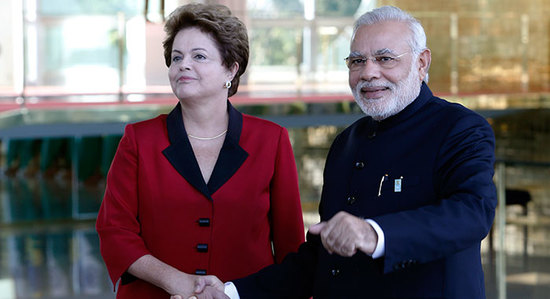If asked to identify the most important trend in international affairs since the turn of the century, many international affairs analysts would point to the unprecedented growth in South-South relations. That is largely due to the rise of China, which has transformed global trade flows: South-South trade has overtaken North-South trade, and China is the most important trading partner of virtually the entire developing world.
Long-term agreements like the one between China and Argentina (regarding infrastructure, nuclear power plants, military and satellite equipment, commodity payment schemes and an $11 billion currency swap) are set to proliferate in the coming years. Similar agreements exist with Venezuela, which has borrowed $50 billion from Chinese banks since 2007. All that will consolidate both China’s economic and political influence in the Global South. The fact that a growing number of world leaders, under pressure from China, have spurned or downgraded meetings with the Dalai Lama is just one reflection of this trend.
Seen from Delhi, China’s growing global influence is both an opportunity and a threat. On the one hand, growing fear of China’s hegemonic ambitions has turned India into the darling of US policy makers who see a strong India as the best bet to contain China in its region (a similar logic applies to India’s ties to Russia and Japan). On the other hand, as it seeks to strengthen its economic presence in the Global South, India will find it increasingly difficult to compete with a well-entrenched Chinese presence in Africa, Asia and Latin America. Last year, Modi met many Latin American heads of state, but it occurred during the 6th BRICS Summit in Fortaleza, and hence under the shadow of Xi Jinping’s presence. A similar dynamic dominated the 5th BRICS Summit in Durban, when Modi’s predecessor met several African leaders.
India’s economic clout is still far smaller than China’s, yet with India’s growth potential in mind, foreign policy makers in Delhi are already building a network of partnerships and platforms the country will need in the coming decades to sustain its ambitions. One example is the India-Africa Forum Summit (IAFS), which underlines India’s long-term plans on the world’s fastest-growing continent. In the same way, IBSA, the trilateral grouping consisting of India, Brazil and South Africa, provides an important opportunity for India to regularly consult with two leading regional powers in Africa and South America.
IBSA, however, is now largely dormant due to a combination of the BRICS grouping’s success and domestic crises in Brazil and South Africa. Both Presidents Rousseff and Zuma preside over a toxic mix of economic stagnation, stubbornly high inequality and corruption scandals, which have dramatically reduced their foreign policy ambitions. Indeed, seen from Delhi, neither Brazil nor South Africa currently look like very attractive partners.
And yet, there are strong arguments for Modi to assume leadership and resuscitate the IBSA grouping. Over the past decade, the platform has allowed the three countries to cooperate in an unprecedented range of issues such as public health, global governance reform, and economic development. In 2011, IBSA sent a delegation to Syria in an attempt to negotiate a ceasefire with the Assad regime. The three governments set up their own development fund, which, though small, has been praised for its innovative practices. There are now 16 working groups on issues such as agriculture, defense and public administration, made up of policy makers from each countries’ ministries. Put simply, IBSA reduces, at a very small cost, mutual ignorance between three of the most important democracies in the Global South, providing member countries with a platform to cooperate whenever it is in their common interest.
The crises in Brazil and South Africa will pass, but it may take several years before the two countries can return to the foreign policy activism of the Lula/Mbeki years. Modi, by contrast, possesses ample political capital to assume international leadership and undertake foreign policy initiatives. It thus depends largely on him to follow-up on his promise to revive the grouping. Of course, IBSA will never be a centerpiece of India’s foreign policy. Yet as China’s economic and diplomatic influence increases in the developing world, India would be well-advised to invest in autonomous platforms and networks that can help it strengthen its partnerships in the Global South in the long-term.
Read also:
IBSA: The Rise of the Global South? (2014: Routledge)
South-South Cooperation: Do the IBSA working groups make a difference?
Why is there still no IBSA free trade agreement?
Lula’s Indian dream, ten years on
Photo credit: AP









